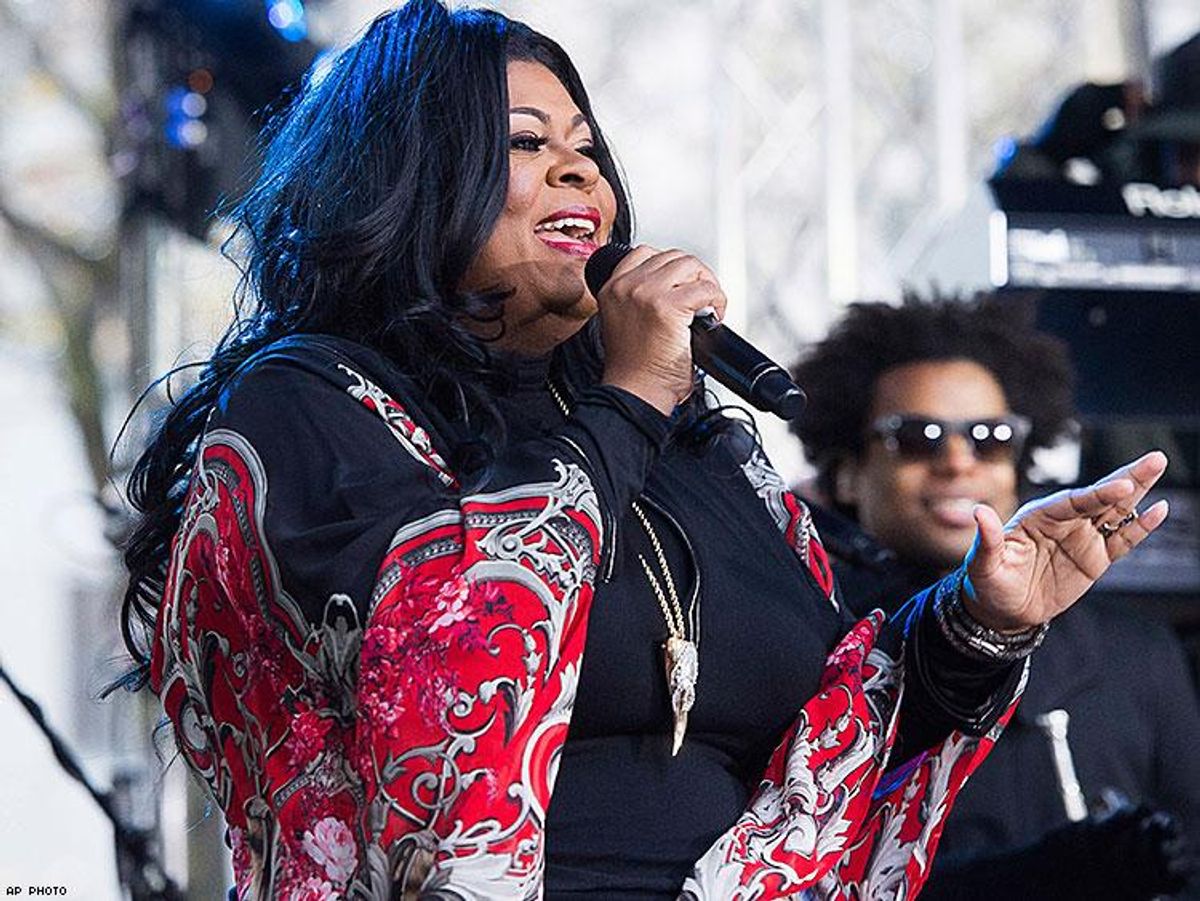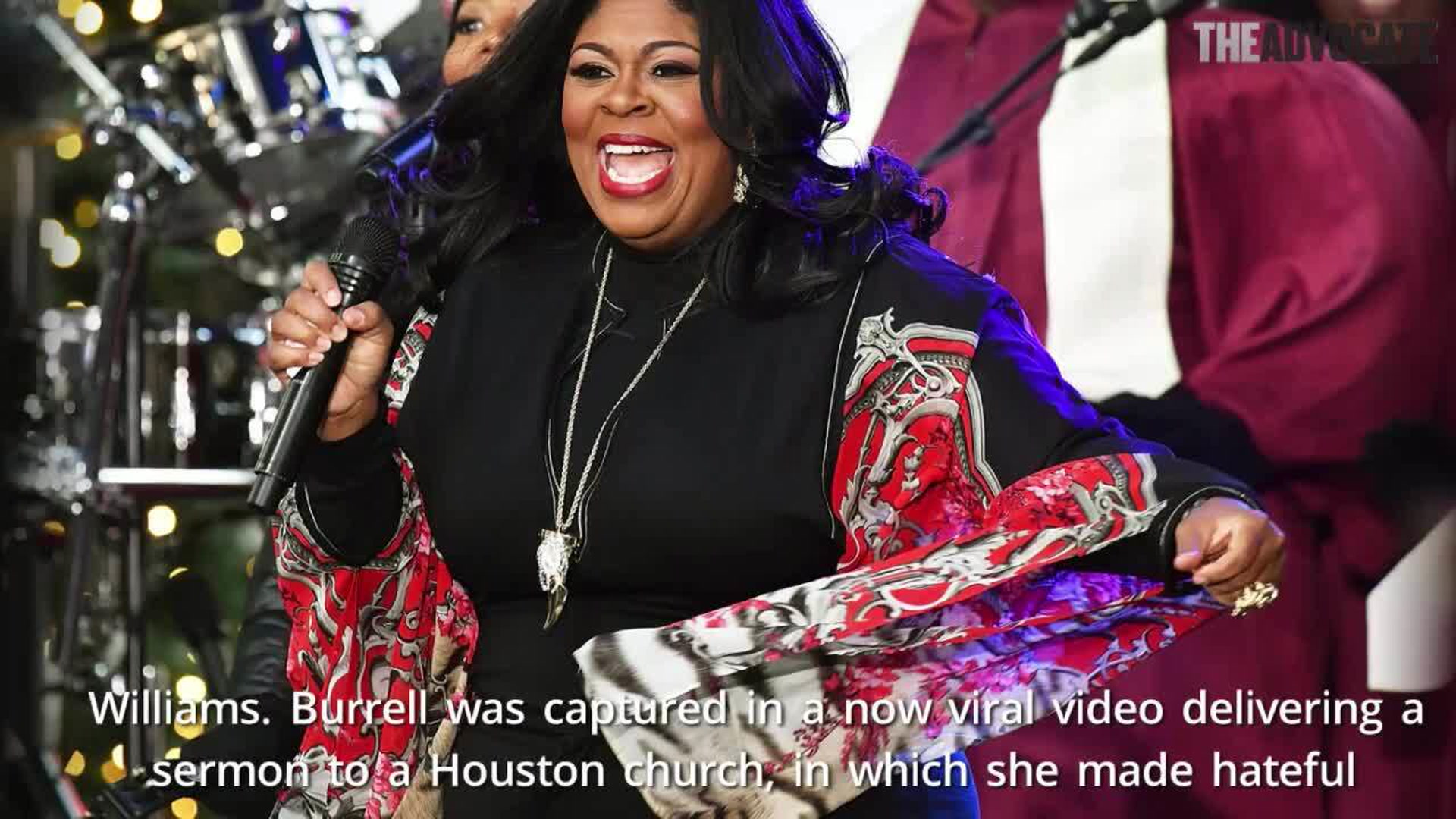Hidden Figures is more than just a movie. The biopic, based on a true story, stars Taraji P. Henson, Octavia Spencer, and Janelle Monae as three African-American women who would overcome segregation and racial bias in 1960s Virginia to become unsung heroes in NASA's space race.
The message of the film, which finally gives these heroines their due, is clear: Bigotry is not only evil, it is illogical. It prevents skilled and smart people from contributing to the greater good.
This beautiful moral makes the actions of Kim Burrell all the more incomprehensible. The singer is featured on the Hidden Figures soundtrack, and her song, "I See a Victory," featuring Pharrell Williams, is about overcoming the "uphill battle" of discrimination. Yet this same voice preached against same-sex love last week in a fiery sermon, calling it "perverted" and an "embarrassment."
"That perverted homosexual spirit, and the spirit of delusion and confusion, it has deceived many men and women," said Burrell. "You as a man, you open your mouth and take a man's penis in your face -- you are perverted. You are a woman and will shake your face in another woman's breast, you are perverted."
The remarks were quickly denouced by Monae, Spencer, and Williams, who took to social media to condemn Burrell's words.
"I condemn hate speech of any kind," Williams wrote on Instagram. "There is no room in this world for any kind of prejudice. My greatest hope is for inclusion and love for all humanity in 2017 and beyond."
"I agree," wrote Spencer while sharing Williams' statement. "We are all God's children equal in his eyes. Hatred isn't the answer. Intolerance isn't the answer."
Prior to the release of the sermon on YouTube, Williams and Burrell had been set to perform Thursday on The Ellen DeGeneres Show. After the severe and swift backlash to Burrell's remarks on social media, DeGeneres, one of the most famous LGBT people in the world, wisely announced Tuesday that Burrell would no longer be a guest.
That Burrell had even planned to perform on Ellen raises mind-boggling questions about bias. Why would she take the media platform offered by the lesbian comedian -- whose "courage ... to risk your career" in coming out when she did was recently honored by Barack Obama with a Presidential Medal of Freedom -- while also condemning her and her marriage to Portia de Rossi? Was this decision rooted in exploitation or ignorance? Had she seen her own film, which preached against such hypocrisy?
DeRay Mckesson, an out and outspoken Black Lives Matter activist, was quick to call out Burrell. "I hope that every gay person whose services you have used in your career refuses to work w/ you now. Your career will end," he posted on Twitter, an acknowledgment that DeGeneres was not the only LGBT person Burrell must have used to advance her career in entertainment.
Burrell's refusal to see that bias -- be it against LGBT people, people of color, or immigrants -- is rooted in the same evil is a teachable moment. Now more than ever, members of all of these vulnerable communities must realize that the fight for equality is shared.
As Monae remarked on Instagram in response to Burrell, "I unequivocally repudiate ANY AND ALL hateful comments against the LGBTQ community. Actually I'm tired of that label. We all belong to the same community, a shared community called humanity."
After all, NASA would not have been able to launch a person into space when it did had it not been for the brilliance of another Presidential Medal of Freedom honoree, mathematician Katherine Johnson, whose story is brought to life by Henson in Hidden Figures. But her path to success -- and America's success -- was not easy.
When Johnson is initially forced to drink from a separate coffee pot, run to use a segregated bathroom across campus, and fight to include her name on a report, the viewer sees how backward, irrational, and useless bigotry is. So why is it so hard to recognize it in the real world today?



















































































Viral post saying Republicans 'have two daddies now' has MAGA hot and bothered